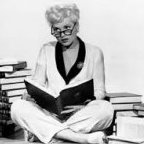Leaderboard
Popular Content
Showing content with the highest reputation on 04/14/19 in all areas
-
2 pointsEven without any prior knowledge of the film, I could tell it was going to be super gross when in the first ten minutes the adjective “spongy” was used to describe the softness of a person’s lips three times. Also, for the record, the family prepares dinner two separate times in the first seven minutes of the movie - which feels...excessive. Then again, I suppose it draws the audience’s eyes to their spongy lips, so what do I know?
-
2 pointsSorry to be the one to point this out, but I think you’re math’s off. Twenty years from when the film was released would have put that concert in 1987 or '88. A quick gander at the Cure's discography shows that their album Kiss Me, Kiss Me, Kiss Me came out in ‘87 and featured the hit song “Just Like Heaven” - which I would argue is The Cure just getting to their commercial height. (Disintegration w/ hits “Pictures of You” and “Lovesong” [their highest charting single] was released in ‘89 and Wish, w/ “Friday I’m in Love,” was released in ‘92.) So, it checks out is what I’m saying. Everything checks out. The whole damn movie checks out. There are no holes.
-
2 pointsAll right The Secret let's talk math. When Olivia Thirlby is coming on to David Duchovny she states "You've got a 36 year old wife in the perfect body of a 16 year old." Also at one point it is stated that Duchovny and Lili Taylor have been together for 20 years. Well quick math tells us that they got together when Lili Taylor was 16, and that means she had to have given birth to her while she was 20. This seems fine but it gets more odd when you think of the overall picture. Taylor and Duchovny's first date was to see the cure. The movie I don't think is a period piece which means they went to see a Cure concert in 1997 which is well past the prime of The Cure. They could have been fans but this seems more likely if they had grown up in the mid to late 80s than the late 90s. People can have different music tastes sure. Next, think about the fact David Duchovny is an optometrist. It takes roughly eight years to become an optometrist. So say he did this from 18, that means from 18 to 26 he was in school. Their daughter was born at the start this time. Raising a child is not cheap and neither is med school, so where is all the money coming from? This leads me to the more creepier thought. Is Duchovny suppose to be the same age as Lili Taylor? Is he 36 as well? If he's suppose to be just a year or two older, that means he was a high school graduate to a full grown adult taking an under aged high school girl to a Cure concert and making out with her all night. Major creep territory and yet somehow seems to fit the motif of the movie perfectly.
-
2 pointsI'm a huge fan of Unspooled and Paul & Amy, but I had a hard time with the dismissiveness of this episode. All The President's Men is a movie that requires patience, and I wonder if that's why the hosts found it frustrating. I've noticed that Unspooled has a sometimes less than critical enthusiasm for directors like Spielberg and Disney, brilliant artists whose seminal works are sentimental and deeply manipulative. At any given moment of Snow White and E.T., the viewer is told exactly how to feel and when to feel it. No patience is required and nothing is left to chance. The central promise of Spielberg and Disney is the escape of an eternal childhood. All The President's Men is about being a grown-up, how mundane and ordinary efforts can - with tremendous persistence - achieve extraordinary, historical results. Pakula forces us to spend a couple of hours being Woodward and Bernstein as they slog through mountains of lies and paper in a quest to get to the truth. All The President's Men is that rare mainstream Hollywood film that pulls back from conventionally obvious dramatic tropes as it asks its audience to work. That's not to say that Paul, Amy, or anyone else should pretend to like the movie if they don't. But I noticed that the cultural significance of this film - X Files, Zodiac, just about any police procedural on TV, the list goes on - got shorter shrift this time around, and received a less than fair hearing. Paul was right: Snow White is a kids' movie: it appeals to the eternal child in all of us. That's a beautiful thing, but it would be nice to see a movie like All The President's Men get credit for being brave enough to ask us to be grown-ups.
-
2 pointsI did not watch this movie. I read the summary and was like nope. I am surprised, from listening to the episode, how little attention is given to the teenage girl. Not only do the parents not seem to care she is dead. But also, like, would a teenage girl WANT David Duchovny? Because I remember having crushes on boys and feeling like I couldn't control it. (Memorably I worked at a movie theater slinging popcorn and I had a crush on a co-worker who was tall and dumb and hot. It was so annoying and distracting. Eventually he dyed his hair that terrible blonde and it was such a relief because I didn't have to crush on him anymore.) It would be more interesting if the wife has an emotional connection to the husband but is physically attracted to Just-In or something. But maybe DD doesn't do projects that don't have every character wanting to fuck him? That is all I can figure. The Japanese version sounds much more interesting. ETA: I do agree with June that teenage girls aren't usually (some are) horny. For me, obviously, it was more crush related. Admiring guys and kissing and such. It is also weird that she'd be so confident in her sexuality to wear lingerie and such? I suppose that is the mom's influence but I would just be in crush-love with boys and NEVER speak to them. Obviously, this goes without saying but this would NEVER get made with the genders switched, as June proved.
-
1 pointHere’s something I simply could not fathom. Hannah keeps insisting that Sam is going to come back so they both decide that the best course of action, to ensure and protect their daughter’s future academic success, is to just keep on keeping on. And, okay, sure, I can kind of get that, but why does she have to physically go to school? Why not just home school? Why does the onus of re-attending High School have to fall on Hannah’s shoulders? She clearly doesn’t want to. At least, not at first. They’re both intelligent, educated adults. Between the two of them, without the distractions and drama of High School, they could probably knock out her course work in a weekend, and then spend the rest of their time trying to figure out just what the heck is going on. Having her go to High School just creates needless obstacles and undue stress. On a related note, while I get keeping her grades up (just in case), I’m not really sure how getting underage drunk and doing drugs is doing her daughter’s body and brain any favors. It’s like borrowing a friend’s car and then shitting in the backseat.
-
1 pointI can’t believe I missed this! So bummed. I saw this movie in theaters and distinctly remember when they zoom out to show the epic battle of Cullens vs Others, that it looked like twelve people in a field. The music was so dramatic and every one had their angriest ‘ready to fight’ faces. I burst out laughing and got shushed by most of the audience. They were unappreciative of the humor.
-
1 pointdeciding to become immortal...as you do This is a good summary. I'm planning on watching the rest of the series since I've seen both parts of the finale.
-
1 pointNo, I get it. I definitely used to feel the same way. I definitely don’t feel like Bella and Edward are aspirational characters in the first movie. She’s insecure and immature. Edward is caustic and controlling. I have a theory that there isn’t one “Edward,” but he represents different relationship types in each of the movies. In the first movie, he’s your first crush. The person you want to be with, but just isn’t right for you - either because you are too different or because the attraction is surface level and the other person is kind of a jerk. It’s the whole bad boy/girl syndrome. In the second movie, New Moon, the relationship is healthier, but still immature. This would be the person you would probably consider your “first love.” It’s also the type of relationship that ends due to extenuating circumstances rather than any loss of attraction or affection. The kind of messy breakup where feelings are left unresolved. Like if you and your high school boyfriend/girlfriend get accepted to different colleges. Or, perhaps more apt, your SO gets accepted to an out of state college and you have to stay home in your soggy, little town. It’s about trying to move on when you’re not at all ready to do so. In Eclipse, it’s about being on the precipice of an adult relationship and coming to terms with a life long commitment (i.e telling everyone you are no longer available, deciding to become immortal). It’s about letting go of the past, and other possible futures, and making a choice - for good or bad. In Breaking Dawn, it’s about solidifying that decision. It’s about maturity and discovering who you truly are by virtue of all the crap that’s come before. By the last movie, Edward isn’t telling Bella what to do. He’s not trying to protect her. They are fighting side-by-side to protect the future they want to create with each other. In terms of lopsided relationships, you could argue that by the end the dynamics have completely reversed. With Edward literally telling Bella, “You are better than me.” (A loooooong way from Twilight - lol) However, I feel like that’s just him being sweet. I feel like they end the series as equals - which is how it SHOULD be and something all couples should aspire towards.
-
1 pointI like to imagine the phone was trying to wash up in Italy for all that lasagna, and then when it realized it washed up in the wrong country it said "Ugh, Mondays" and then got up to the kind of mischief that only a nasty cat like Garfield could get into.
-
1 pointSorry I missed this viewing. I really tried watching the first one, and I just couldn't get through it. I don't remember if their relationship was so lopsided in the finale, but holy cow! I mean, Bella is completely weak and helpless, and Edward is the apotheosis of the abusive controlling boyfriend. He repeatedly says to her that he wants to kill her or hurt her, and she needs to stay away from him, but that she's like a drug to him and he's not sure he can control himself around her. And she's all, "I don't care, I just want to be with you. I love you." WHAT?! Is it that bad in the book? Also, diamond skin? Are vampires evolved so that their skin just reflects light and that's how they can go out during the day?
-
1 pointRegarding Watergate vs. the present: The Final Days has been a scary read for me. All the detail in that book about Nixon not listening to his lawyers, and Republicans supporting him for a very long time even after he was clearly obstructing justice -- well it doesn't support the discussions I see on cable news today about how Watergate was different because republicans challenged their president in the 1970s. Almost every republican supported Nixon until he turned over the tapes.
-
1 pointI had mostly quit listening to the podcast because of past frustration with Paul--you obviously need to love his personality to be a regular listener. I should have remembered that the worst time to listen to any podcast is when it's talking about a favorite movie! I kept wanting to hit my head against my car window. I think the movie is perfect in accomplishing what it's trying to do. It might not be everyone's taste but I love the whole thing. So many classic/talented actors. Jane Alexander is a particular favorite. Movies about investigative reporters are in my wheelhouse in general. And classic 70s movies tend to be my taste. I love that they don't spoon feed the viewer. I love the grinding pace, it fits what they're trying to show. And the reporters have different personalities but they are both so ambitious and they figure out how to work together. My mom was obsessed with Watergate, she watched it on TV all day long, read every book, and my parents argued about some of the key players for years over the dinner table. Over the years, I've read many of the participants' books. As well as other Watergate books, including a bio of the Jack Warden character. But I'd never read a Woodward and Bernstein one until recently. I don't like what Woodward turned into, which started right after the Watergate success. Then because it's come up often in discussing Trump, I've been reading The Final Days, and I had recently read about a third of All the President's Men. I've seen the movie many times and I recognized that most scenes in the beginning the movie track surprisingly closely to the book. From the first appearance in court, and the other character' discussion of the background given to the two authors, and Woodward's phone call with Dahlberg -- dialogue is the same. The book also contains a footnote about the kidnapping Dahlberg mentions in the call (which is a famous one in MN). During the podcast, they said the director's name over and over and they pronounced it in a way I'd never heard before, then the guest came in and said it the usual way. That sort of thing wouldn't usually bother me but it probably hurt me more because they didn't properly appreciate the movie. I liked the guest. I feel a little bad that I didn't love The Post. It was hard to get around Tom Hanks, and I'll never be sure whether it is because I'm tired of Tom Hanks in general, because the real Ben Bradlee is so well known, or whether it's the Jason Robards Ben Bradlee I like even better than the real one. There was no way Tom Hanks was going to be able to please me.
-
1 pointSeveral people have brought up the question of the handwriting at the end. I think this movie is pulling a brilliant Minority Report style ambiguous ending: if you want the handwriting to show that the daughter has gained a new respect for her deceased mother, then you can walk away without thinking about it any further. Stop reading if that sounds nice to you. However, if you want to think about the real consequences of a grown woman who has been trapped in her dead daughter's body, keep reading. So you have just been busted doing drugs by your husband/dad who is having his own emotional breakdown over the question of what is going to happen to his family. You've just had a vision in which you see your own dead body fading out of existence. You now realize there is no going back. You finally understand your daughter's life, and you finally understand that she is gone. What do you do? Do you try to convince your husband to face this fact? He has rejected your attempts to remain a wife, and he has rejected your attempts to find a new life for yourself with this new body. He'll only accept one way out: the daughter's return. Conveniently, this is an outcome in which he: Accepts your life choices Doesn't try to bang you Supports you financially while you restart your life Trying to be honest with him would just result in a bizarre divorce, and he would probably try to have you committed to an institution. So, you convince your hus-dad that the daughter is back. You don't get hit by car, or struck by lightning, or anything. You just wake up one morning and pretend to faint dramatically. He wants to believe you, anyway. And then you carry on with your new life. It's a little tricky that you can't help but use your old-style handwriting, but you pass it off as an homage to your late mother. But at least you can bang that hot photography teacher on the regs.
-
1 point
-
1 point
-
1 pointI loved this episode. Them explaining the movie to June may be one of my favorite parts ant episodes. I hope it becomes a thing for all of the movies that June misses, or at least all of the crazy ones like this.
-
1 pointFull disclosure: I haven't listened to the episode yet, but when did that ever stop someone on the internet from giving an an opinion? I wonder if someone's opinion of All the President's Men can be affected by their age. I absolutely love this movie - it's one of a handful that I watch about once a year (others include Pulp Fiction, Mad Max: Fury Road, JFK, Apocalypse Now, Lone Star, The Seven Samurai). Maybe not the greatest movies ever, but ones that hit me on a personal level in some way. I was in elementary school when Watergate happened, but I remember the way it absolutely dominated public conversation. I even remember arguing about whether Nixon was guilty or not with my classmates (I was pro-Nixon at the time). My earliest political memory is my mom watching the Watergate hearings on T.V. during the summer. And I vividly remember Nixon resigning, even though I was only 9 years old. My family was camping in Canada, but we ran into friends who told us Nixon was about to quit. We actually gathered around the car radio to listen to Nixon's farewell. It's hard to understate the way Watergate dominated the public consciousness back then. So I wonder if my enthusiasm for All the President's Men partly grows from my coming of age during and just after Watergate. Plus, I was pretty aware of what happened with Nixon, so I didn't need a lot of background about when I first watched the movie - probably when it first aired on TV, maybe in the late 70s or early 80s? I could see where someone growing up later might not engage with the film quite as much. That said, I still think Pakula does a lot with a very minimalist approach. As some have noted earlier, his storytelling is super-economical, but he manages to give the audience just enough to understand what is going on and to be caught up in the excitement and drama. Credit has to go to Redford and Hoffman too. I noticed when I watched the film last week how spot on their performances are for delivering information through tone of voice, expressions, and body language. Regarding nothing distinguishing the two, I can't agree with that, but notice when Ben Bradlee refers to the pair as "Woodstein." I've read that it was a running joke at the Washington Post for staffers to get the two mixed up.
-
1 pointI have a question about the end of the movie that they didn't bring up on the podcast. Was the reveal that Sam was writing in her mother's handwriting supposed to read only as a sweet tribute to her mother? Or was it supposed to raise doubt about which persona was actually controlling Sam's body? I would say tonally at that point it didn't feel sinister. But it also felt like the only reason to bring up the handwriting earlier in the movie was to go out on an ambiguous ending that leaves the audience guessing. But maybe I am the only one guessing.
-
1 pointUgh, this movie was gross. My wife and I watched it last night. We are very open people sexually, both bi and part of the LGBT community. We also have a significant age difference and understand how people can be into that sexually. In the kink community there are all kinds of ways that people explore and challenge power dynamics, with an emphasis on safety and consent. But. Honestly, this movie feels like a screenwriter wanted to make a thoughtful movie about incest but the only way he could get it made is by inventing a Freaky-Friday-meets-Lars-von-Trier premise. It has all the classic hebephile fantasies where a teenaged girl aggressively pursues an older man/her own father. Meanwhile the dad is sexually jealous of her peers. It might have actually been a thoughtful exploration of the subject if they had just dropped the device, had the daughter survive the accident as herself and go through an inappropriate attraction to her father as part of her trauma before leveling out and returning to a healthy relationship. Instead it feels like someone watched The Lover and Lolita a bunch of times and said to themselves, "these are great films but the endings are such a bummer!" So, in summary, fuck this movie. It is very unpleasant to watch, and not really fun in any way.
-
1 pointThe adaptation of this novel is so much different from the Japanese movie and from the novel itself and is more bonkers then the American adaptation. I will try my best with this convoluted story line. It does play into Japanese tropes of Lolita complex and repression of outward feelings. The mother persona never leaves the daughter body like in the American adaptation and the mother takes it as her chance to have a second chance at life and do things should didn't do in her previous life. The mother persona in the daughters starts dating the son of the bus driver that caused their car accident and end up dating him!! Knowing that their relationship wont work with her husband while living in her daughter's body. She fakes a split personality disorder and pretends her daughters persona is coming back and taking back the daughters body so she can then date said son and marry him. The husband realizes that the mother persona never left and was faking the daughter persona so they can both move on with their different lives. This becomes the secret they keep not telling the other what the other one knows. Wikipedia did it better. https://en.wikipedia.org/wiki/Naoko_(novel) I love the author Keigo Higashino, since he is one of the few English translated works I could read while I was living in Niigata, Japan. he is a really great murder mystery novelist (Devotion of Suspect X is really good and won many awards and I recommend reading or listening on Audible) and the book The Secret is based on Naoko is based on Japanese surrealism like any Murakami novel. Thanks Paul, June and Jason, I have been listening to you since Burlesque and it helped when I was living in Japan during the 3/11 quake .
-
1 pointI once saw a transcript for a sermon in which the pastor was using the 1988 Jamaican bobsled team as a metaphor but he was really just outlining the plot of Cool Runnings beat for beat. Not that I necessarily have an issue with that, but he was trying to pass off what happens in the movie as historical fact. I like to think that maybe it was Saturday night and he was watching the Disney Channel and thought, “Oh fuck! I forgot to write a sermon this week!”
-
1 pointAgain this movie says all you need to say and know about the characters it just doesn't "say" it. You get that they are young and hungry reporters. That much is said. What is not said you get from their attire, desks, apartments, mannerisms and actions. Going back to the old film adage of show don't tell, this movie shows us a lot about these characters and paints a very detailed picture of them. Just think about these facts: we know that they are young, Bernstein has long hair, he has a bike wheel at his desk, he has a picture of a cyclist at his desk as well, Woodward is the only one seen driving. Put that all together we get a young guy with liberal leanings, possible early environmentalist, that bikes in the city. Do we need him to tell us these things? Do we need a scene in which he tells why he chooses to bike? No. We have all the information we need to put those bits together ourselves. In the end does knowing more about him or why he chooses to bike enrich the story or tell us more about the Watergate scandal and its investigation? No, so why should we spend time with backstories?
This leaderboard is set to Los Angeles/GMT-08:00
-
Newsletter














